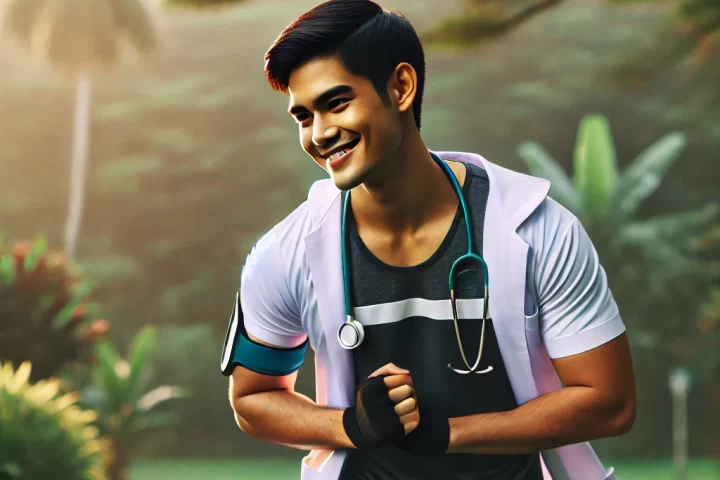Most healthcare workers and facilities were caught unaware by the corona virus pandemic. Orthopedic surgeons who answer ER calls for acute extremity trauma weren’t exempted from this onslaught. After a short stint at the pandemic frontline, I was back lining COVID-19 front liners with hospital’s emergency incident command (HEIC) group. After about a week with HEICS, a friend told me I was on the verge of collapsing. I made it through another week, just in time for another pull out for yet another task. I thought I was out of the frying pan.
An article in JAMA Internal Medicine predicted a pandemic of behavioral problems and mental illness in the general population as a consequence of COVID-19. Health workers are already experiencing burnout and “moral injury” even prior to this pandemic. Moral injury “describes the mental, emotional, and spiritual distress people feel after perpetrating, failing to prevent, or bearing witness to acts that transgress deeply held moral beliefs and expectations” says Dr. Williams. The uncertainties of COVID-19 fight all the more add to this burnout and moral injury. Little has been discussed about the health workers own mental health.
There are myriad of reasons why many health workers does not verbalize anxiety while frontlining. Front liners are very busy saving others, often to the point of self neglect. Personally, anxiety was at its during the mandatory 2 weeks post front lining quarantine. Doing nothing while on isolation could wreak havoc on mental health if left unaddressed. For example, I had bouts of the “interns’ syndrome”- diagnosing myself to have contracted COVID-19 based on clinical symptoms of the disease. I also had sleepless nights thinking about the “what if” scenarios if I contracted the disease. Yet I survived the isolation days thanks to a network of social support (including social media) that worked from a distance, and these four essential “steps” I learned from the writings of Adam Grant, a Wharton professor. Here are those essential steps:
Labelling. The same JAMA Int Med article predicts a substantial increase of mental health issues during and probably after pandemic. Problem is, not many in this generation have prior pandemic experience. Even with health workers who deal with a lot of stress may find this pandemic-related anxiety, on a different level. Most psychologists and psychiatrists would just call it “anxiety” but I don’t think I had this level of anxiety before. I will call it “Post Front lining Stress Disorder” just to highlight the elevated anxiety level . Not totally a very scientific way of labelling but yeah, I am very anxious post front lining.
T1. Are you dealing with pandemic related mental health issues as a health worker ? How did you came to terms with this?
Reframing. I’m not exactly an introvert, but I’m comfortable being alone. I read books, hike mountains, travel places and photographed landscapes on my own. The enhanced community quarantine however is prohibitive to some of these activities. So I reassessed my isolation, tried to understand and looked for “productive” opportunities in each of these perspectives. The fear of dying alone doing nothing is I’m afraid what inspired me to reframe my isolation.
T2. What or who was your inspiration for “reframing” your isolation?
Distraction. The most insane part of the isolation ordeal for me is distraction . I tried cooking, vlogs, zoomongering and social destalking- unfollowing apocalyptic people and news online. I’m pretty surprised about the things I can and can’t do while in isolation. What’s more important was the act of trying to distract myself from a sordid state of self isolation. Just a warning that although “distraction” may alleviate misery on the short term, some “distractions” like alcohol or drugs have destructive effect on people.
T3. Whats the funniest distraction you did while quarantined or isolated?
Amelioration. There was a point in my distracted state that I realized, distraction isn’t enough. I have to protect my (and the people I love) health. I have to help protect my work and colleagues and my embattled nation. I have to learn, do or produce something relevant to this COVID-19 pandemic. I learned HEICS ala “The Matrix” in 2 weeks time. But thats another story.
T4. What was the most productive thing you’ve done while isolated or quarantined?
Join #HealthXPh twitter chat on April 18 at 9PM Manila Time as we suggest ways of turning quarantine into quality time. Note the following guide questions and append #HealthXPh to all your tweets!
- T1. Are you dealing with pandemic related mental health issues as a health worker ? How did you came to terms with this?
- T2. What or who was your inspiration for “reframing” your isolation?
- T3. Whats the funniest distraction you did while quarantined or isolated?
- T4. What was the most productive thing you’ve done while isolated or quarantined?
See you all!
Image by Freepik





